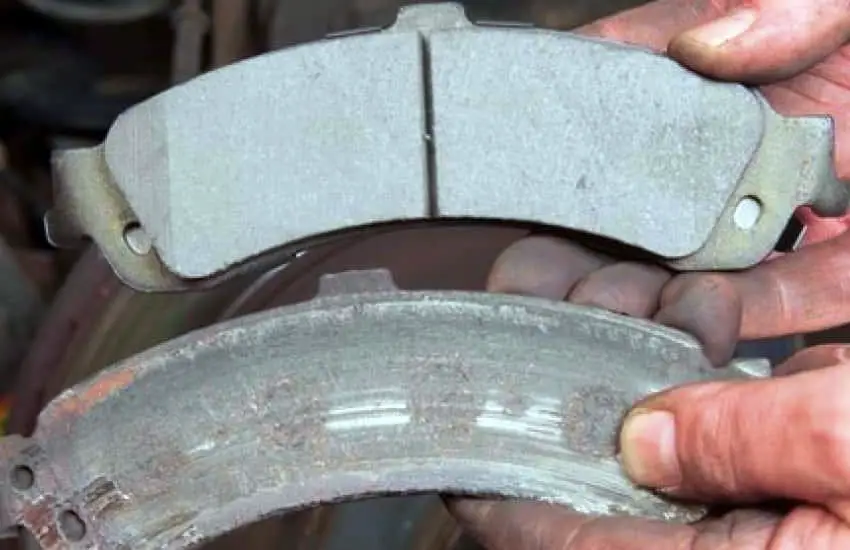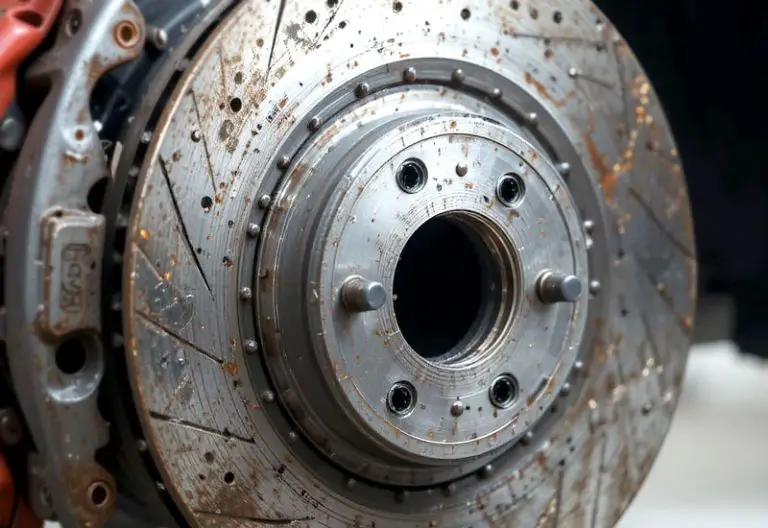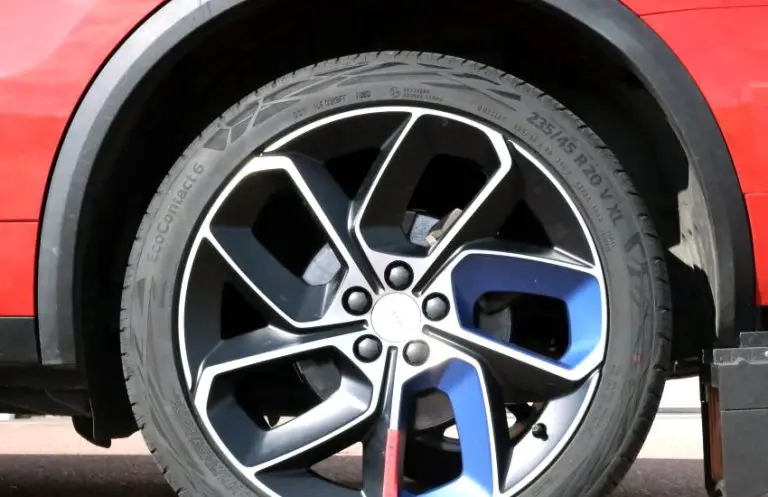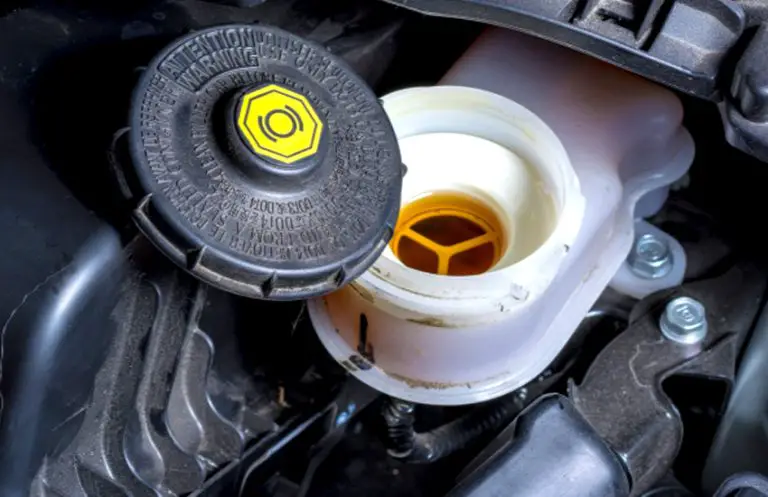Imagine you’re driving down a winding road, and as you press on the brake pedal, you feel the car slow down smoothly. The brake pads are doing their job, allowing your vehicle to come to a stop safely. But have you ever wondered, can brake pads be too thick for use? After all, thicker pads may sound like a good idea, offering longer life and better braking power, but could there be a downside to them? In this article, we’ll dive deep into the question of whether brake pads can indeed be too thick for your vehicle’s braking system.
Brake pads are an essential component of a car’s braking system. They are designed to create friction against the brake rotor, slowing down or stopping the vehicle when you press the brake pedal. Over time, brake pads wear down, which is why regular maintenance and replacement are crucial. But when you consider replacing them, you might wonder: is there such a thing as brake pads being too thick?
This question may seem simple, but it brings up many aspects of car maintenance, safety, and the function of your brake system. In this post, we’ll explore the topic in detail, covering how brake pads work, the impact of thickness on performance, and the potential dangers of overly thick pads. We will also answer some frequently asked questions about brake pads to give you a complete understanding of this critical vehicle component.

How Brake Pads Work and Why Thickness Matters
Brake pads are an integral part of your car’s braking system. When you press the brake pedal, the brake caliper squeezes the brake pads against the brake rotor, creating friction. This friction slows down the wheel’s rotation and eventually brings the car to a halt. Over time, the friction causes the brake pads to wear down, which is why you need to replace them periodically.
The thickness of the brake pads plays a key role in the overall braking performance. Thicker pads can absorb more friction and last longer, reducing the need for frequent replacement. However, the thickness of the pads is just one factor in how well they perform. Other factors, such as the material of the pads, the design of the brake rotor, and the condition of the braking system, also come into play.
Brake pads come in various thicknesses, and the thickness you choose will depend on your driving habits, the type of vehicle you own, and how much wear and tear the braking system has already experienced. But can brake pads be too thick? To understand this, it’s important to look at how the brake system works as a whole.
Brake Pad Material and Design
Before we dive into the issue of thickness, it’s important to understand the different types of brake pads and materials used to manufacture them. Brake pads come in a range of materials, each with its advantages and disadvantages. Some common materials include:
- Organic brake pads: Made from a mixture of fibers, rubber, and resins. These pads are often quieter and produce less dust but wear out faster than other types.
- Semi-metallic brake pads: These contain metal fibers like steel or copper. They offer better performance and durability, especially in higher temperatures, but can be noisier and produce more brake dust.
- Ceramic brake pads: These are made from a blend of ceramic materials and are known for their quiet performance, low dust, and long lifespan. However, they can be more expensive.
Each type of material interacts differently with the rotor, and the choice of material can influence the effectiveness of thicker or thinner brake pads. Some materials may be more effective with thicker pads, while others might perform optimally with pads of a certain thickness.
Brake Pad Wear and Tear
Brake pads wear down as they come into contact with the rotor and produce friction. The rate of wear depends on several factors, such as the type of driving you do (city vs. highway), the weight of your vehicle, and how often you brake hard. When the brake pads wear down, the friction they create diminishes, which is why the brake system can lose effectiveness over time.
Thicker brake pads typically last longer, but they also change the way the brake system behaves. For example, thicker pads might require more time to break in properly, which can lead to initial performance issues. Additionally, the material of the pad might affect how quickly the pad wears down. If a pad is too thick, it may prevent the proper functioning of the braking system, leading to overheating or other issues.
Too Thick Brake Pads: The Potential Problems
Now that we’ve explored how brake pads function and the importance of their thickness, let’s dive into whether it’s possible for brake pads to be too thick for use. While thicker pads might seem like an advantage, there are potential problems associated with using brake pads that are excessively thick for your vehicle.
Caliper Clearance Issues: One of the most common problems when using brake pads that are too thick is insufficient clearance between the brake caliper and the rotor. If the pads are too thick, they may not fit properly within the caliper, causing the caliper to exert uneven pressure on the pads. This can lead to inconsistent braking performance, and in some cases, it may cause the caliper to become stuck or damaged.
Overheating: When brake pads are too thick, they can generate more friction, which may lead to increased heat buildup. Excessive heat is a known enemy of braking systems, as it can cause brake fluid to boil, leading to brake fade. Brake fade is when the braking system becomes less responsive due to overheating. This can significantly reduce the safety of your vehicle, especially during high-speed driving or emergency braking situations.
Reduced Braking Efficiency: Surprisingly, thicker brake pads might actually reduce the overall braking efficiency. The reason for this is that they might create too much friction too quickly, leading to a less controlled braking experience. In normal conditions, the brake pads should create enough friction to slow the car smoothly. Too thick a pad could result in sudden deceleration, which can lead to jerky stops, increased wear on other components of the braking system, and discomfort for the driver.
Noise and Vibration: Thicker pads may also cause increased noise and vibration while braking. The added thickness can affect the way the pads interact with the rotors, causing a rougher or uneven surface contact. This could result in squeaking or grinding sounds during braking. Over time, this could damage both the pads and the rotor, leading to costly repairs.
Increased Wear on Other Components: If the brake pads are too thick, they may cause excess wear on other parts of the braking system. For instance, the added pressure from the thicker pads can wear down the rotors more quickly. Additionally, components like the brake fluid, hoses, and master cylinder could face increased stress. All of this can lead to more frequent maintenance needs and a shortened lifespan for your vehicle’s braking system.
When Are Thicker Brake Pads Beneficial?
While excessive thickness can cause problems, there are certain situations where thicker brake pads may be beneficial. For instance:
Heavy Duty or Performance Vehicles: If you drive a heavy-duty truck, off-road vehicle, or sports car, you may benefit from thicker brake pads. These vehicles generate more heat and require more braking power to safely stop. Thicker pads can provide greater durability and improved performance in these cases.
Towing and Hauling: If you regularly tow trailers or carry heavy loads, thicker brake pads can help manage the increased stress placed on the braking system. The added thickness can increase the surface area for friction, improving braking efficiency when carrying extra weight.
Racing and High-Performance Driving: High-performance cars used in racing conditions often require thicker, more durable brake pads. These vehicles experience extreme braking forces, and thicker pads can help handle the heat and friction generated during high-speed driving.
In these cases, thicker pads may be necessary to ensure safety and performance, but it’s important to choose pads that are compatible with your vehicle’s braking system to avoid the issues mentioned earlier.
The Importance of Proper Brake Pad Selection
When choosing brake pads for your vehicle, it’s crucial to select pads that are the right thickness and type for your driving needs. Brake pads that are too thick or too thin can lead to reduced braking performance, safety risks, and increased repair costs. Here are some key factors to consider when selecting brake pads:
1. Manufacturer Specifications
Always follow the manufacturer’s recommendations for brake pad thickness and type. The manufacturer designs the brake system to work best with specific components, including the brake pads. Using pads that are too thick or too thin for your vehicle could interfere with how the braking system functions and lead to safety concerns.
2. Driving Conditions
Your driving habits and the type of driving you do will influence the type of brake pads you need. If you do a lot of city driving with frequent stops, you might benefit from pads that offer good stopping power and durability without being too thick. For highway driving, thinner pads may suffice, as there’s less frequent braking. If you tow heavy loads or engage in off-road driving, thicker pads might be necessary.
3. Material and Design
Different materials offer different benefits. Organic pads are quieter but wear faster, while semi-metallic and ceramic pads are more durable and offer better performance under heat. Choose a material that suits your driving conditions and performance needs.
4. Brake Pad Maintenance
Regular maintenance of your brake pads, including checking their thickness and overall condition, is vital to keeping your braking system functioning properly. Many brake pads have wear indicators that signal when they need to be replaced. Keeping an eye on these indicators can prevent problems caused by excessively worn or thick brake pads.
Are These Questions in Your Mind?
Is it possible for brake pads to be too thick for my car?
Yes, if the brake pads are excessively thick, they can cause issues with fitting, increased friction, and overheating, reducing braking efficiency and safety.
Can thick brake pads cause the brake calipers to malfunction?
Yes, overly thick brake pads can create insufficient clearance between the pads and the calipers, causing uneven pressure, malfunctioning calipers, and inconsistent braking.
Do I need thicker brake pads for off-road driving?
Yes, off-road driving generates more heat and requires better braking power, so thicker brake pads may be beneficial for such driving conditions.
Can thick brake pads cause overheating?
Yes, thicker brake pads may produce more friction and generate excessive heat, leading to brake fade and reduced braking performance.
Is it safe to use aftermarket brake pads that are thicker than the originals?
Using thicker aftermarket pads may cause issues like overheating, excessive pressure on the braking system, or caliper clearance problems if they are not compatible with your car’s specifications.
Can brake pads that are too thick wear down the rotors faster?
Yes, thicker pads can cause increased friction, leading to faster wear on the brake rotors.
Is it necessary to change brake pads to a thicker type if I drive a performance car?
Not necessarily; performance cars are often designed with specific types of pads that balance performance and safety. Consult the vehicle’s manual or a professional mechanic before making changes.
Can I use thick brake pads for city driving?
For typical city driving, thick brake pads may not be necessary. Standard pads will likely offer better performance and comfort without the issues that come with thick pads.
Do thick brake pads affect braking noise?
Yes, thicker pads can cause more noise or vibration due to uneven interaction with the rotor.
Is it recommended to replace brake pads with thicker ones to improve braking power?
It is important to replace brake pads with the proper thickness and material that match the specifications for your vehicle, rather than simply opting for thicker pads to improve braking power.
I hope this article has helped you understand the complexities of brake pad thickness and whether thicker pads are always better. While thicker brake pads may provide benefits in certain situations, using them without proper consideration can lead to issues with your vehicle’s braking performance and safety. Always follow the manufacturer’s recommendations and select pads that suit your specific driving needs to ensure optimal braking performance and safety.


